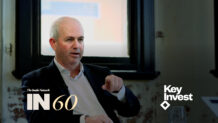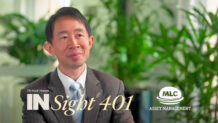Inaugural Impact report offers roadmap for greater adoption
Investment markets have a reputation for being ultra-competitive, with the concept of a zero-sum game meaning one investor’s loss is another’s gain. Yet in the fast growing “impact” investment sector, it appears the opposite is true, with managers seemingly revelling in the success of others.
This was likely among the reasons behind the release of Conscious Investment Management’s inaugural ‘Impact Report.’ Reflecting on the release, Conscious director Casey Taylor reiterated this point, saying “by sharing our learnings and experiences to-date through this report we hope to further the conversation about impact investing in Australia, and encourage greater transparency and reporting amongst the sector.”
The report includes a summary of the eight individual investment projects with which the group has been involved, spanning social and seniors housing, distributed solar, social impact bonds and specialist disability accommodation (SDA), where Conscious has deployed about $238 million in capital since its inception just a few short years ago.
With the support of a diverse range of family offices, institutions and high-net-worth investors, Conscious is seeking to build a model that assists to “unlock the power of mainstream investment markets to fund assets that create positive social and environmental impact.”
Like many others operating in the responsible and sustainable investment sector, Conscious links its achievements to the UN Sustainable Development Goals, but takes its analysis several steps further. The foundation of the business is based around the concept of ‘measuring impact,’ and providing its clients with a transparent view of this.
The reporting highlights a five-step process that naturally begins with the identification of the challenge as opposed to an investment benchmark as a starting point. At this macroeconomic stage, Conscious seeks to identify the key “social or environmental challenge that your capital could help solve.”
What follows is an intense, Phase 1 review of the project or opportunities, centred around its proprietary CARES framework. This requires any investment to be measured against five key factors, being: a Conscious decision, seeking returns; Actionable events, that are defined and measurable; Relevant to the industry; focus on outcomes or Effects, rather than outputs; and most importantly, to Scrutinise the impact metrics and performance constantly.
The team then applies its collective mind to determine what impact the capital it is deploying will have, with sectors that would otherwise go unfunded, like affordable housing, a real-world example. At this point, Conscious differentiates between outputs, such as the number of additional homes built, versus outcomes, which is their impact on society.
Next comes the impact assessment, with every project assessed against five IMP (the Impact Management Project, the rating methodology that is the global consensus) dimensions, which ultimately results in a score between 1 and 5 points. Scores between 0 and 2 represent investments which “act to avoid harm” but have limited impact. Those between 2.1 and 3.4 benefit the relevant stakeholders, such as seniors or disabled people seeking homes as well as the investors. Finally, those scoring over 3.4 points are projects that actually contribute to long-term solutions. Among Conscious’ existing projects, Special Disability Accommodation ranks highest, with an IMP score of 5, with distributed solar not far behind, at 4. The group remains focused on investing into real assets, particularly those with contractual cash yields, with a bias to those sectors in which the government is a counterparty to the transactions.











